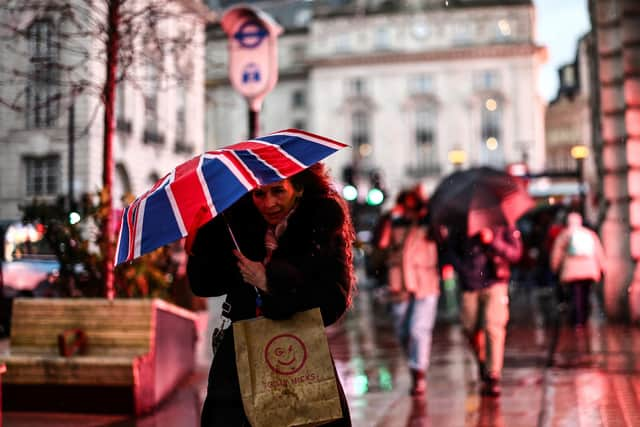Retail sales remain slow as ‘hangover’ of low consumer confidence remains
Figures from the BRC-KPMG Retail Sales Monitor have shown that total UK retail sales increased by 1.2 per cent year-on-year in January, against a growth of 4.2 per cent in January 2023.
This was above the three-month average growth of 1.9 per cent and below the 12-month average growth of 3.4 per cent.
Advertisement
Hide AdAdvertisement
Hide AdLinda Ellett, UK head of consumer markets, leisure & retail at KPMG, said: “It may be a new year, but the hangover of low consumer confidence remains, with retail sales growing by a lacklustre 1.7 per cent on the high street, and online operators seeing yet another month of negative sales performance.


“It remains a difficult environment for retailers facing into significant downward pressures on demand, a strong promotional environment and uncertainty hitting supply chains due to rising geopolitical tensions. Retailers will be hoping that continued good news on the economy, coupled with the small boost given to some consumers as cuts in national insurance start to feed through to pay packets, will boost confidence and convert to sales.”
Food sales increased 6.3 per cent year-on-year over the three months to January, against a growth of 8.0 per cent in January 2023. This is below the 12-month average growth of 8.1 per cent.
Non-Food sales decreased 1.8 per cent year on year over the three-months to January, against a growth of 2.9 per cent in January 2023. This is steeper than the 12-month average decline of 0.5 per cent.
Advertisement
Hide AdAdvertisement
Hide AdOver the three months to January, In-store Non-Food sales decreased 1.5 per cent year on year, against a growth of 7.2 per cent in January 2023. This is below the 12-month average growth of 0.8 per cent.
Online Non-Food sales also decreased by 4.2 per cent year on year in January, against a decline of 4.1 per cent in January 2023.
The proportion of Non-Food items bought online decreased to 35.0 per cent in January from 35.4 per cent in January 2023.
Helen Dickinson OBE, chief executive of the British Retail Consortium, said: “Easing inflation and weak consumer demand led retail sales growth to slow. While the January sales helped to boost spending in the first two weeks, this did not sustain throughout the month.
Advertisement
Hide AdAdvertisement
Hide Ad“Larger purchases, such as furniture, household appliances, and electricals, remained weak as the higher cost of living continued into its third year. The milder temperatures meant clothing sales performed poorly, particularly winter clothing and footwear. It was better news for health and beauty products, which continued to sell extremely well.”
Ms Dickinson also noted her belief that government intervention is needed to “unlock” investment in retail.
She said: “With the Spring Budget in sight, and a general election looming, government cannot afford to ignore the needs of retailers and their customers. Employing three million people and supporting families and communities in every corner of the country, retail is the ‘everywhere economy’.
“By addressing the cumulative burdens, from business rates’ rises, to ill-conceived new recycling proposals to border control costs, the next government can unlock retail investment and boost local and national economic growth.”
Comment Guidelines
National World encourages reader discussion on our stories. User feedback, insights and back-and-forth exchanges add a rich layer of context to reporting. Please review our Community Guidelines before commenting.